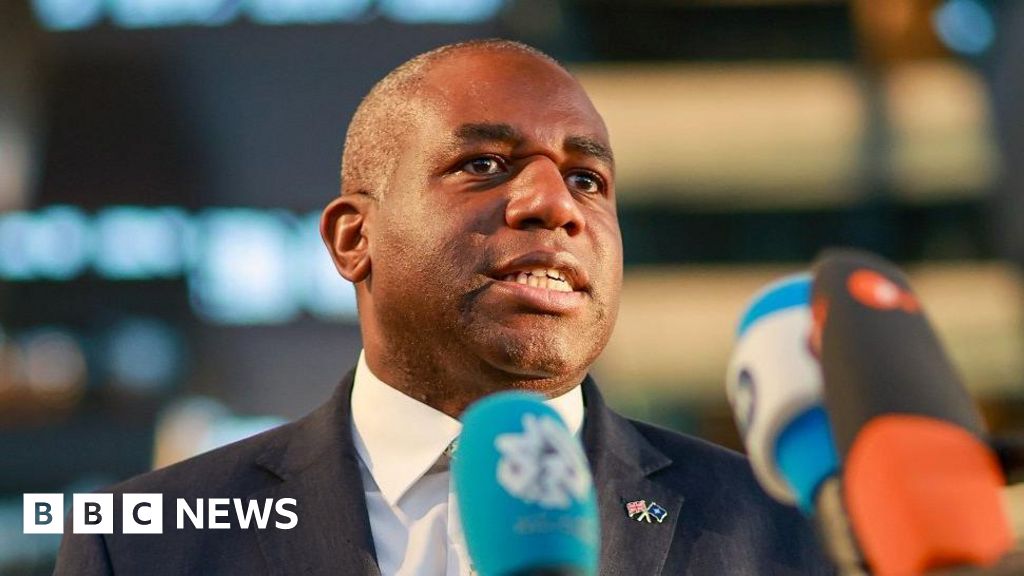- BlackVoter.Org
- Posts
- BlackVoter.Org
BlackVoter.Org

In a significant move, the President of the Democratic Republic of Congo (DRC) has commuted the death sentences of three American citizens—Marcel Malanga, Tyler Thompson Jr., and Benjamin Reuben Zalman-Polun—convicted for their involvement in a failed coup attempt last year.
Initially sentenced to death by a military court, their sentences have now been reduced to life imprisonment just as U.S.
officials prepare to visit the country. The coup, led by Malanga's father, targeted the presidential palace in May 2024 and tragically resulted in fatalities, including those of political figures.
President Felix Tshisekedi's decision followed a clemency petition recommended by the Minister of Justice, though officials assert it was not a maneuver to appease the U.S.
, amid ongoing conflict in the eastern region of the DRC and talks for a minerals-for-security partnership. U.
S. diplomatic efforts will focus on promoting peace and investment in the region.
In "Decades of Racial Bias Have Shaped US Welfare Programs, Sidelining Black Americans," Sal reveals the troubling history of racial discrimination embedded in the fabric of American welfare. From the inception of the mother's pension program in 1911, which systematically excluded Black women, to today’s policies that perpetuate these disparities, welfare has long been marred by bias.
Despite its intended purpose as an equalizer, the design and implementation of welfare programs have often reinforced stereotypes and discriminatory practices against African Americans, particularly in the South. Roosevelt's New Deal, though a significant response to the Great Depression, allowed states to dictate eligibility, leading to systemic exclusion of Black citizens.
This article highlights the urgent need to confront and rectify these historical injustices in welfare systems, aiming to foster inclusivity and equity for all Americans.

/

Downing Street has dismissed Foreign Secretary David Lammy’s claims that recent US tariffs signal a return to protectionism, asserting that they are committed to ongoing trade negotiations. In a bid to address mounting concerns over President Trump’s blanket 10% tariffs on nearly all UK exports, Lammy expressed regret over this shift towards protectionist policies, likening the situation to past economic downturns.
The UK government aims to mitigate the financial fallout, with some leaders, including Prime Minister Sir Keir Starmer, acknowledging the global economic implications. While there’s potential for retaliatory tariffs, the government is optimistic about negotiating favorable terms that could include discussions on technology and agriculture.
Meanwhile, global stock markets have reacted negatively to the tariffs, intensifying fears of an impending trade war that could hinder UK economic growth.

A groundbreaking study reveals that the abolition of slavery in the United States was significantly influenced by the booming whaling industry, in addition to moral and economic arguments. Historians have traditionally debated the central motivations behind abolition, but this research highlights whaling's crucial role as an overlooked catalyst.
From 1650 onwards, whaling provided lucrative products like oil and spermaceti, enabling Black sailors—some formerly enslaved—to earn money, buy their freedom, and support the abolition movement. The data shows a direct inverse relationship between whaling activity and the prevalence of slavery across states, suggesting that increased whaling contributed to a gradual decline in enslaved populations.
Moreover, whaling towns became hubs of financial support for abolitionist efforts, embodying a meritocratic spirit that contrasted sharply with plantation economies. While not without its own ethical dilemmas, the whaling industry paved the way for a significant shift toward human rights and freedom in America.

In a revealing piece by Mark Leibovich for The Atlantic, it becomes clear that the Democratic Party is grappling with a myriad of issues that undermine its cohesion and appeal. With low favorability ratings and a deepening trust crisis, Democrats find themselves lost in a whirlwind of self-identifying problems, from a lack of narrative to dwindling support from diverse working-class voters.
The party's incessant navel-gazing has spawned a "problems problem" that risks alienating both members and the electorate. While Democrats obsess over their shortcomings, including a "smug problem" and "credibility problem," it’s crucial for them to shift focus towards the future and unearth promising leaders for the upcoming elections.
Ironically, engaging with their own shortcomings could prove beneficial, offering a chance to spotlight the Republicans' mounting issues. Ultimately, success in elections might just turn the tide, transforming woes into a renewed vision for the party.

In a powerful display of unity and determination, Black women leaders and activists flocked to Capitol Hill, rallying to "Save Democracy" from the sweeping impacts of Donald Trump's MAGA agenda. The coalition, including newly elected Senators Lisa Blunt Rochester and Angela Alsobrooks, denounced the administration's budget cuts and attacks on vital programs that disproportionately affect Black communities.
Organizer Melanie Campbell declared, “We’re back” after a break from political engagement following the 2024 election. The rally underscored the urgency of fighting against proposed cuts to Medicaid, education, and civil rights protections.
With a call for action, attendees highlighted the significant strides made with the election of two historic Black women senators, emphasizing resilience in the face of adversity. As Campbell noted, “We’re built for this,” they are determined to continue advocating for justice and equity, firmly believing that their activism matters in shaping a better future.